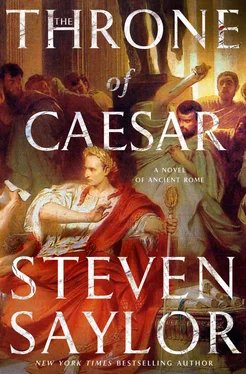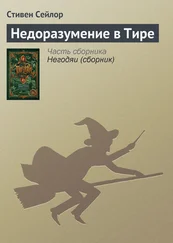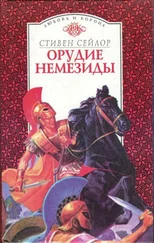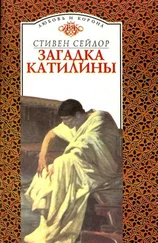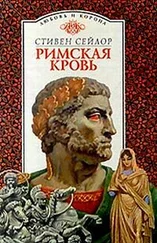Стивен Сейлор - The Throne of Caesar
Здесь есть возможность читать онлайн «Стивен Сейлор - The Throne of Caesar» весь текст электронной книги совершенно бесплатно (целиком полную версию без сокращений). В некоторых случаях можно слушать аудио, скачать через торрент в формате fb2 и присутствует краткое содержание. Год выпуска: 2018, Издательство: St. Martin's Press, Жанр: Исторический детектив, на английском языке. Описание произведения, (предисловие) а так же отзывы посетителей доступны на портале библиотеки ЛибКат.
- Название:The Throne of Caesar
- Автор:
- Издательство:St. Martin's Press
- Жанр:
- Год:2018
- ISBN:нет данных
- Рейтинг книги:5 / 5. Голосов: 1
-
Избранное:Добавить в избранное
- Отзывы:
-
Ваша оценка:
- 100
- 1
- 2
- 3
- 4
- 5
The Throne of Caesar: краткое содержание, описание и аннотация
Предлагаем к чтению аннотацию, описание, краткое содержание или предисловие (зависит от того, что написал сам автор книги «The Throne of Caesar»). Если вы не нашли необходимую информацию о книге — напишите в комментариях, мы постараемся отыскать её.
The Throne of Caesar — читать онлайн бесплатно полную книгу (весь текст) целиком
Ниже представлен текст книги, разбитый по страницам. Система сохранения места последней прочитанной страницы, позволяет с удобством читать онлайн бесплатно книгу «The Throne of Caesar», без необходимости каждый раз заново искать на чём Вы остановились. Поставьте закладку, и сможете в любой момент перейти на страницу, на которой закончили чтение.
Интервал:
Закладка:
Our host stood at the center of the dining room. Meto, who had been acquainted with him for years, introduced us. Lepidus was clean shaven. His full head of silver hair was stylishly cut to look a bit tousled and unkempt, but I had no doubt that each lock had been carefully laid in place by the slave who groomed him. He stepped forward to greet me and clasped my right hand in a firm grip.
“Gordianus, father of our esteemed Meto—it’s so good to finally meet you. You’re something of a legend, you know.”
“Am I?”
“Oh, yes. At this dinner, only legends! Well, for guests, I should say. I won’t presume to use such a word for myself.”
“Nor would I for myself,” I said.
“Humble.” Lepidus nodded thoughtfully. “Yes, Meto says as much, but that’s a son speaking about his father. One doesn’t expect it to be true. I so often find myself surrounded by men who are the opposite of humble that I forget the virtue actually exists.”
“If it is a virtue,” said Meto. “My father has no reason to be humble, not after the life he’s led.”
“The same could be said of you, Meto.” Lepidus smiled. “I think you must be the only man still alive who actually fought alongside Catilina in his revolt. Now that is the stuff of legend. You rose from slave to citizen, and now you are to be the son of a senator. And then there are your literary achievements, for which you receive no credit whatsoever, though I know for a fact how scrupulously you attend to Caesar’s grammar and syntax, not to mention his occasional factual errors. Oh, yes, Gordianus—even Caesar, like Homer, sometimes nods, and your son is there to ever so gently open his eyes to any small oversight in the text. Thus are Caesar’s memoirs made perfect before they’re copied for an eager readership.”
“I assure you, Master of the Horse, there is no such thing as a perfect text.” Meto shrugged off the compliment, but I saw that he was pleased by Lepidus’s words.
“Ah, but I think the man himself is about to join us.” Lepidus looked past us, at a slave who was gesturing to him from across the garden. “Yes, not only Caesar, but my other guests as well. They must all three have come in a group.” He clapped his hands. Two slaves seemed to appear from nowhere, each bearing a tray of three silver cups filled with a dark red wine. “That means we can at last quench our thirst. It would have been rude to begin without the guest of honor. And here he is!”
Lepidus strode forward, across the garden. He embraced Caesar, who was dressed in a shimmering tunic with long sleeves. The fabric was silk, woven in a very complex design; one could see all kinds of colors amid the interwoven patterns. Caesar would later tell us that the fabric came all the way from Serica, beyond India. Once Parthia was conquered, and its trade routes claimed by Caesar, we might expect such exotic fabrics to become common in Rome.
To Caesar’s left stood Decimus Brutus, dressed in a dark green tunic. The woolen garment was gathered at the shoulder with a golden brooch and cinched at the waist with a golden belt. Even at a distance I could see that the dragon-headed clasps were of Gaulish design. The Gauls have no peers when it comes to such metalwork.
To Caesar’s right stood Cinna, wearing a white linen tunic without ornament. The belt was of black linen, cinched with a simple silver clasp. When Cinna saw me, he gave me an impish wink, as if to say, Here we are, among the stars. Can you believe it?
Lepidus turned about and led the other three toward us. To either side of me, braziers burned. Torches flickered from various sconces in the surrounding portico. The last faint light of day lit the ashen sky, in which the first stars had begun to shine. The four men moved amid green shrubs and tall statues. The ever-changing light, the men in their finery, the looming figures of marble and bronze—all combined in a moment of surpassing strangeness. I looked at Meto, wondering if he, too, felt it. On his face I saw a look of deep contentment that increased with each step that brought Caesar nearer.
The two of them embraced. I acknowledged Decimus and Cinna. Meto, stepping back from Caesar, gave each a friendly nod. We were offered wine. I noticed that my cup was exquisitely decorated with an image of Silenus quaffing wine from a Greek krater, surrounded by wildly cavorting nymphs, dryads, and satyrs. The flickering light on the embossed silver seemed to make the figures tremble ever so slightly, as if alive and merely holding a pose.
Of the wine, I remember nothing. Nor can I recall any of the food I was served that night. Those details, so vivid at the time, are lost to memory. Yet I remember Silenus and those satyrs on the silver cup, and I remember what each of us was wearing, as clearly as if Cinna, Caesar, Meto, Decimus, and Lepidus stood before me, all of us still alive, as we were on that torchlit, starlit night.
Before we reclined on the couches, Caesar drew me aside. “The list?” he said.
I shook my head. “I have nothing to report, beyond the comments I made to Meto. That was the day before yesterday.”
“Yes, he passed along to me the thoughts you expressed. ”
“I fear I’ve been of no use to you.”
“Of no use? Never. Of little use? Perhaps. But even an empty report may signify something. Or rather, nothing. Which is what I hoped for. Calpurnia will be greatly relieved that the Finder found nothing to fear. For some reason, she has a very high estimation of your talents.”
“My talents, such as they are, have usually been employed in finding the truth of some event that’s already taken place. I’ve never claimed to have any talent for prevention or precognition. I can’t foretell the future.”
“No man can. Not even Spurinna, though I know he means well. As I say, your lack of alarm will comfort Calpurnia.”
“And you as well, Caesar?”
“Any worries I may have had are now in the past. I have no fear of anyone on that list I gave you, or of anyone else in Rome, for that matter.”
He flashed a smile that did not seem quite appropriate, and in his eyes I saw a feverish glint that was the first indication of the singular mood he was to display throughout the evening—a strange excitability, an animation out of proportion to the moment, an occasional, vaguely manic laughter that set my teeth on edge. No one else seemed to notice these things, not even Meto. I told myself that Caesar was simply excited at the prospect ahead of him, so close now—the conquest of Parthia and the unprecedented, almost inconceivable power it would give him, the power to marry multiple queens, to sire many princes, to become more godlike than any mortal before him, to be remembered for all time.
We took our places on the dining couches. I reclined next to my son, Cinna beside Decimus, and Caesar beside our host.
At first we talked of practical matters. We spoke of my elevation to the Senate and Cinna’s solution to my toga dilemma. A great deal was said about the preparations of everyone except myself to depart Rome—Decimus to govern Gaul, Lepidus to govern Spain (a full legion was encamped on the Tiber Island just outside the city to escort him), Cinna and Meto to travel with Caesar.
Cinna had been with Caesar for most of the day, the two of them holed up at Cinna’s house (“the only place where I can escape from all other concerns,” Caesar explained) to work on the speech that Caesar would deliver to the Senate the next day. This was to be no ordinary oration, but a combined farewell speech and valedictory address, in which Caesar would put forth for posterity his version of the civil war (briefly, so as not to dwell on the past) and his vision for the future of Rome as the capital city of the world—not Alexandria or Troy, as some rumors had reported. The speech, Caesar declared, was a masterpiece—thanks in no small part to the contributions of Cinna.
Читать дальшеИнтервал:
Закладка:
Похожие книги на «The Throne of Caesar»
Представляем Вашему вниманию похожие книги на «The Throne of Caesar» списком для выбора. Мы отобрали схожую по названию и смыслу литературу в надежде предоставить читателям больше вариантов отыскать новые, интересные, ещё непрочитанные произведения.
Обсуждение, отзывы о книге «The Throne of Caesar» и просто собственные мнения читателей. Оставьте ваши комментарии, напишите, что Вы думаете о произведении, его смысле или главных героях. Укажите что конкретно понравилось, а что нет, и почему Вы так считаете.
